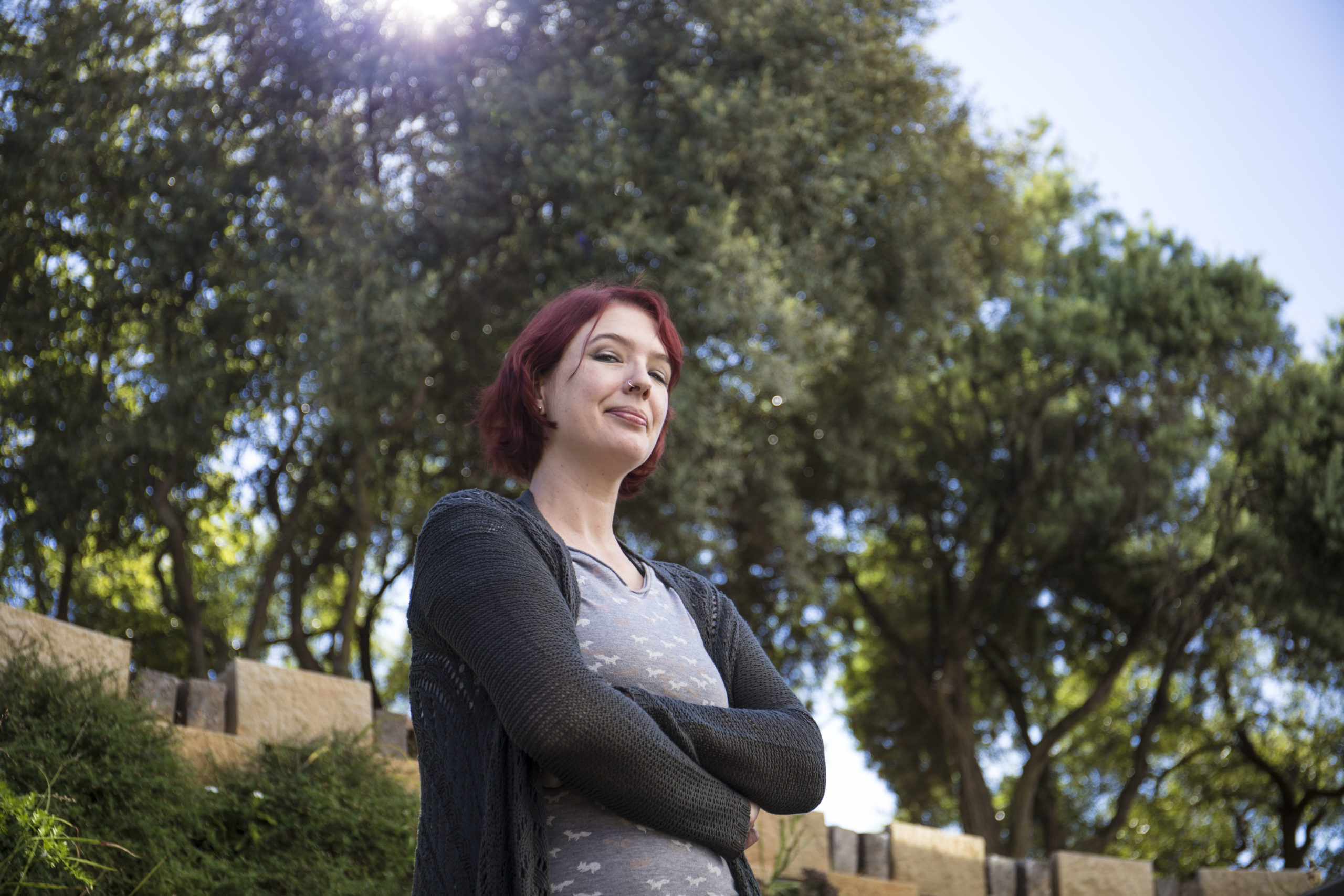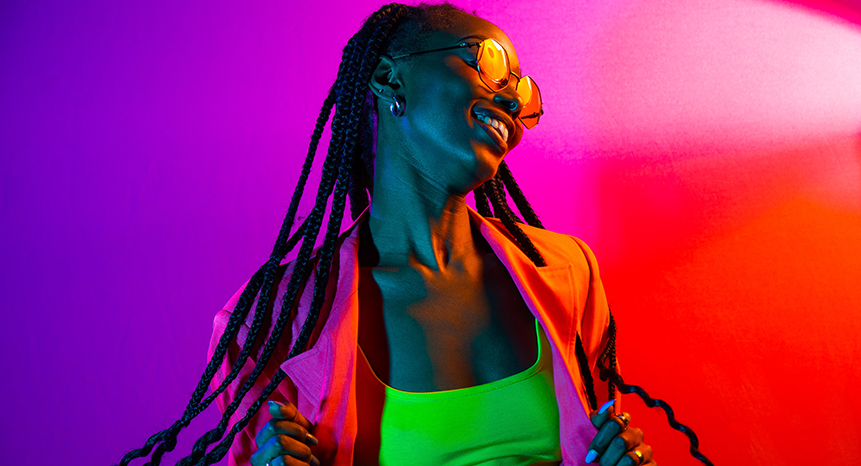Neo Khoto, a young Content Creator interviewed Jeanette Grove, Grey’s Creative Director: Content & Social.
What are some of the challenges you faced as a young person and their respective lessons that formed the leader you are today?
I actually started my career in television production. I interned at a production house, first as a researcher, then as continuity checker on set. I eventually discovered my love for scriptwriting and editing, and moved into a role of junior producer. This was back in the late 90s, so – while the landscape was slowly changing – there was, sadly, still a whole landslide of discriminatory behaviour in the industry. I was often not taken seriously, because of my youth and because I was “just a girl”. I promised myself at that point that I would make sure nobody I worked with or mentored would ever feel discriminated against because of their race, culture, gender, age, religion, or sexual persuasion. Inclusivity is very important to me. We learn from and through diversity; it’s what makes us find creative solutions to problems.
Another thing I learned, thanks to the awkward-ness that is me (and often being paranoid about things I maybe did or possibly said – it’s one of the symptoms of suffering from impostor syndrome…ask anyone in advertising, ha ha) is to embrace the weird; to let your freak flag fly. People appreciate honesty, and a bit of a laugh. Also, it’s amazing how well you can smooth over an awkward situation with a healthy dose of self-deprecating humour.

When you’re looking to grow your team, what are some of the qualities you look for in a person?
There are a few qualities I value when I meet a prospective new team member. Transparency and honesty, for sure. Also, a spirit of humility and kindness. And, a sense of humour is always a bonus, especially if it’s a weird one
We have a slogan in team social – if you f*ck up, own up – it encompasses how important taking accountability is to me. Everyone stuffs up – we’re all only human and mistakes happen – but own up to it (ideally we come up with a solution together) and then everyone can move on and live their best lives.
To you, what is important? Reputation or potential?
That saying, your reputation precedes you? That’s exactly it, isn’t it? You have no control over your reputation; it’s what people have heard about you before they even meet you. So, that can be good, of course. But it can also be bad, if your reputation is based on gossip or rumours.
Potential, though, is something tangible; it’s something you see in someone. And watching this potential get realised is one of the most wonderful things to witness.
So, I would have to go for door number 2 here.
Being in the industry for some time, what are the changes you’ve seen throughout the years and where do you see it going in five years?
Whoo, I could go on for hours about this (because “some time” is a very polite understatement, ha ha) so I’ll just mention two things. I’ve witnessed the industry become more inclusive, which is great – that willingness to listen to different points of view, and realising that our diversity is one of our biggest assets.
When I fell into advertising in 2011 (before that I dabbled in production, then music journalism, then corporate comms, video editing, and environmental journalism) I joined the digital team at Ogilvy as a freelance copywriter. Things were still very fragmented and siloed back then…and “digital” was often an afterthought of a campaign. Like “could you turn this print ad into a social post” kind of afterthought. Things have changed a lot since then – and while many agencies still haven’t embraced integration, I’m proud to say that Grey isn’t one of them. Digital (and thus Social) is part and parcel of everything we do, and our digital strategic thinkers and creatives get involved in a campaign right from the beginning, during the concept stage.
.
Do you think the way brands behave/communicate should have any kind of cultural influence in the world? If so, how would a brand go about achieving this?
Brands don’t influence culture. Culture influences brands, which then gives these brands a place in the cultural makeup. So, in that sense, brands can become cultural symbols that are meaningful to people. A brand that gets this really right is Wendy’s. The fast food chain found their niche market (gamers) and really embedded themselves into that community, earning their love and loyalty. I think it all started when Wendy (the character) joined Fortnite and started blowing up freezers (because Wendy’s burgers are fresh, never frozen).
Wendy’s brand purpose on social media is to “make friends….and then invite them to lunch”. The brand engages in shared interests with the gamer community, they actively listen, and they entertain. Only THEN do they sell product and push app downloads.
Ultimately, how a brand connects with their audience (and how it plays a meaningful role in their conversations) will affect how big a mark it makes on culture. I read somewhere that brands that are getting it right don’t market to the world, they behave in it, with authenticity and personality. I like that idea.
What’s the one piece of advice you’d give to a young creative trying to find their way in the industry?
Only one? Impossible. Here are a few bite-sized nuggets:
Be true to yourself. Own your weirdness (unless you are 100% normal – but who is? – then own that normalcy). You’re not the only one suffering from impostor syndrome Find yourself a cheerleader, and return the favour by being someone else’s. And, have fun, always – if you stop having fun in this industry, it’s probably time to go work in a bank.
Finally, as a mom, how do you ensure you keep a healthy work-life balance where neither your personal and professional life is compromised?
That’s a tough one, and not something I always manage very well, sadly. Our work-life balance (whatever that even means) has been thrown out of whack over these past two years…working from home means you’re always at work. You’re basically living in your office space. And it’s easy to just carry on working, without switching off and taking a break.
I try to do two things consciously:
- Start work early, so that I can spend some time with the dudes when they get home from school.
- Try to welcome interruptions. This is one of my favourite quotes, from Stephen King: “It is, after all, the dab of grit that seeps into an oyster’s shell that makes the pearl, not pearl-making seminars with other oysters.” Any day’s interruptions and distractions don’t much hurt a work in progress and may actually help it in some ways. As creatives, we often have our best ideas when we’re not in front of a screen typing up emails.




